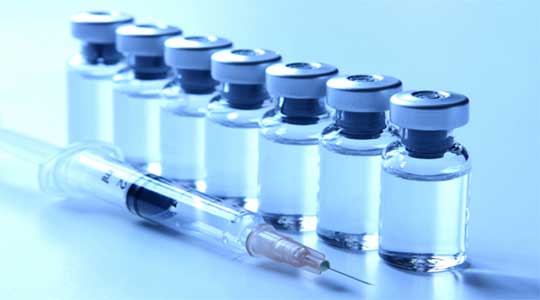The US researchers have developed personalized cancer vaccines that target unique genetic errors in a patient’s tumor.
Safety tests on three people, published in the journal Science, showed the immune system could be trained to fight skin cancers.
The research team, mainly based in St Louis and Oklahoma City, says the early results mark a “significant step” towards personalized cancer vaccines.
UV light can transform healthy skin cells into deadly melanomas by damaging the DNA.
The tumors are a genetic mess, containing hundreds of random mutations that are different in every patient.
The mutations can change the proteins that stick out from the surface of cells and act like identifying flags.
The team analyzed the genetic mutations to predict the new and unique flags that would be flown by the cancer cells.
A computer algorithm then analyzed the new flags, known as neoantigens, to decide which would be the best targets for a vaccine.
Personalized vaccines were given to three patients with advanced tumors in 2013. All had already been treated with another therapy – ipilimumab.
One was in remission and has stayed cancer-free; another still has stable tumors; and the third patient’s tumor shrank in the months after the vaccine before returning to its original size and remaining stable.
The team is, at this stage, testing just the safety of the vaccine and whether it provokes an immune response.
They say it was successful on both counts.
One of the researchers, Dr. Gerald Linette, said: “Our team is very encouraged by the quality of the immune response directed against the melanoma neoantigens in all three patients.
“Our results are preliminary, but we think the vaccines have therapeutic potential.”
His colleague, Dr Beatriz Carreno, added: “These findings represent a significant step toward more personalized immunotherapies.”
The personalized vaccine approach has a number of hurdles to clear.
For a start, proper clinical trials are needed to prove that the immune boost actually makes a difference to controlling the tumor.
There are also questions about cost and the time it takes – currently three months – to develop each person’s vaccine.
However, if the approach proves successful it could be useful in other highly mutated cancers such as those found in the lung.
They may also have a role in breast and ovarian cancers in women with BRCA mutations, such as Angelina Jolie, which also tend to be very mutated.
